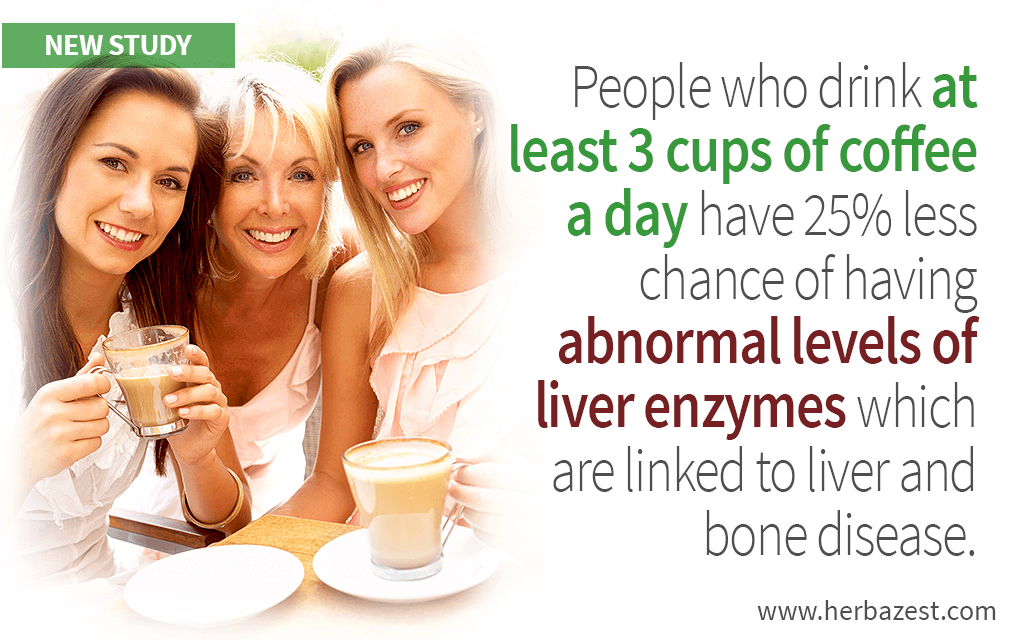The human liver can weight up to 4 pounds (1.8 kg) and it is a major body organ, necessary for digestion and elimination of waste products, among other essential functions. The liver is often taken for granted and heavily taxed by the typical Western diet, full of processed food, saturated fats and simple carbohydrates. Liver diseases, including acute hepatitis, viral hepatitis, liver cancer, cirrhosis, and fatty liver (alcohol and non-alcohol associated) are prevalent around the world, killing about two million deaths every year.1 These alarming statistics have led to an abundance of scientific research in order to better understand the role of the liver in human health and prevent liver diseases. This large scale study analyzed the effects of drinking coffee on liver health.
The Study
Researchers analyzed the coffee-drinking habits of 27,793 people, aged 20 and older, from 1999 to 2010. They had the subjects fill out diet questionnaires in the US National Health and Nutrition Examination Survey. More than 14,000 of the subjects drank coffee on a regular basis. The researchers factored in things like age, education, smoking, sex, and race, among others. They then tracked levels of four enzymes related to liver function.
The Results
The researchers found those who drank three cups of coffee a day were approximately 25% less likely to have abnormal levels of liver enzymes linked to liver and bone disease, compared to the non-coffee drinkers of the study. The study included around 2,000 subjects who only drank decaffeinated coffee. Interestingly, their results were similar to the regular coffee drinkers. In short, the higher the coffee intake, the lower levels of liver enzymes.
What Does This Mean?
The reasons for the beneficial effects of coffee on the liver are still unclear, according to Dr. Qian Xiao. This is because there are over a thousand different compounds in coffee, so it is difficult to pinpoint exactly what is responsible for its therapeutic effects. Xiao made it clear, however, that this was an observational study, not a cause and effect study. Therefore, there might still be surprises hidden beneath the link between coffee consumption and risk of liver disease.
Other herbs that are great for liver health include milk thistle, hepatica, and goji berries.
Sources
- Hepatology, Inverse associations of total and decaffeinated coffee with liver enzyme levels in NHANES 1999-2010, 2014
Footnotes:
- Journal of Hepatology. (2023). Global burden of liver disease: 2023 update. Retrieved November 27, 2024, from: https://pubmed.ncbi.nlm.nih.gov/36990226/




